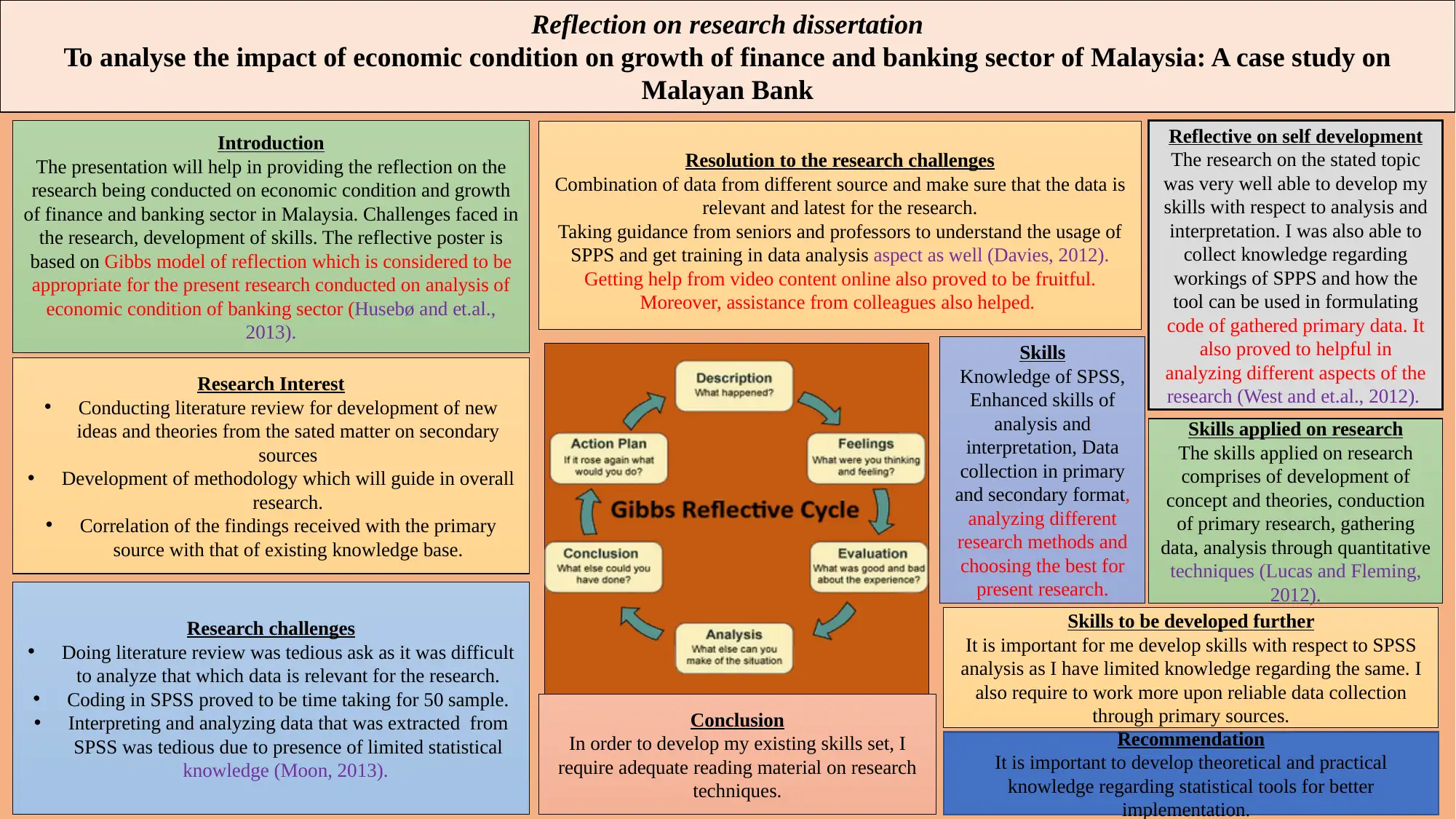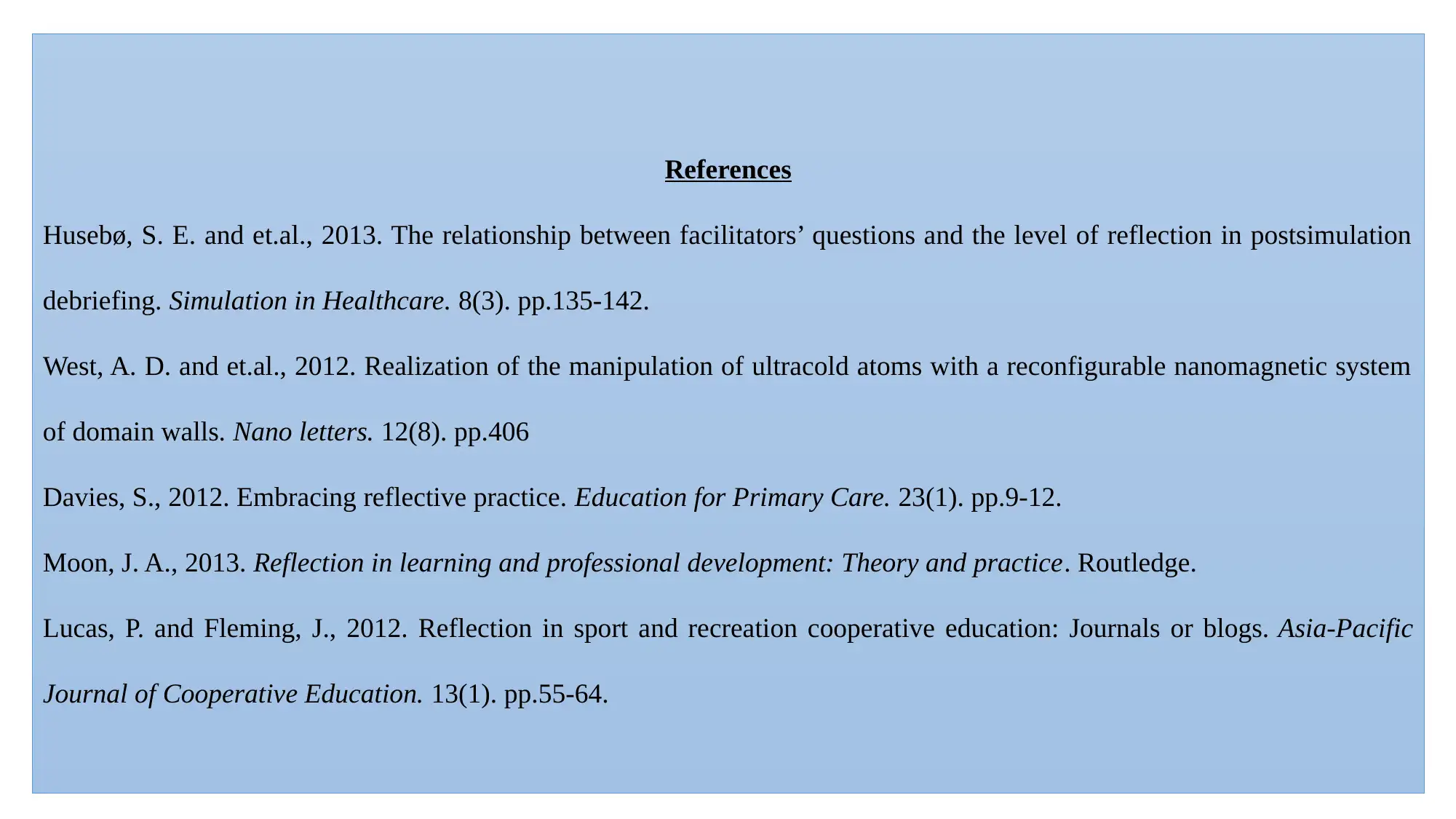Case Study: Impact of Economic Conditions on Malayan Bank, Malaysia
VerifiedAdded on 2023/03/23
|2
|647
|91
Report
AI Summary
This report presents a reflection on a research dissertation that investigates the impact of economic conditions on the growth of the finance and banking sector in Malaysia, with a specific case study on Malayan Bank. It addresses challenges encountered during the research process, including literature review, SPSS coding, data interpretation, and analysis. The report highlights the development of skills in SPSS, data analysis, and research methodology. It emphasizes the importance of continuous learning and the need to further develop skills in SPSS analysis and data collection. The reflection is based on Gibbs model of reflection which is considered to be appropriate for the research conducted. The report concludes with recommendations for improving theoretical and practical knowledge of statistical tools for better research implementation. Desklib provides access to similar solved assignments and study resources for students.
1 out of 2








![[object Object]](/_next/static/media/star-bottom.7253800d.svg)